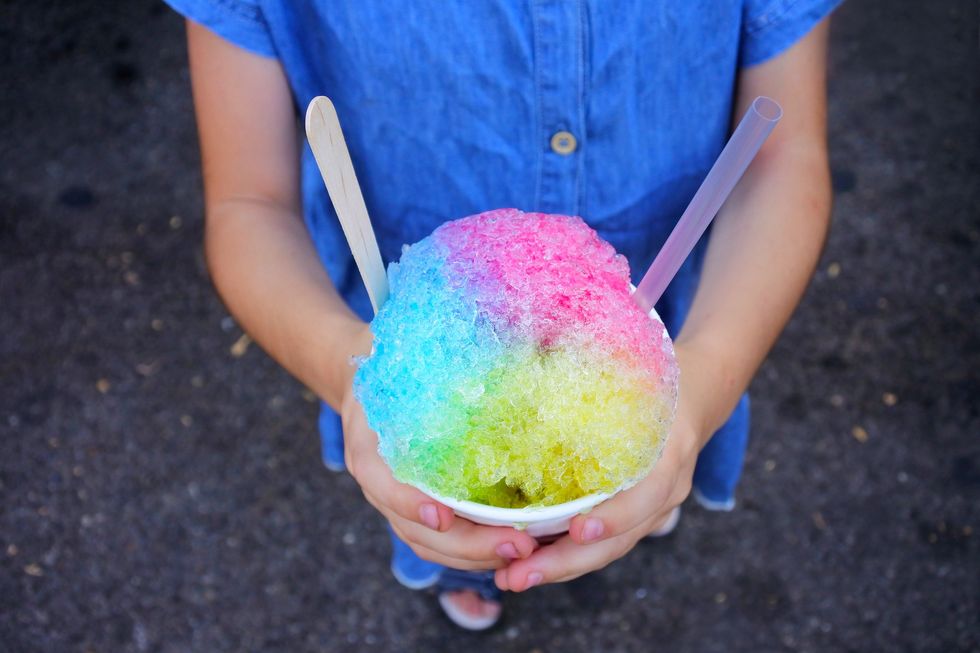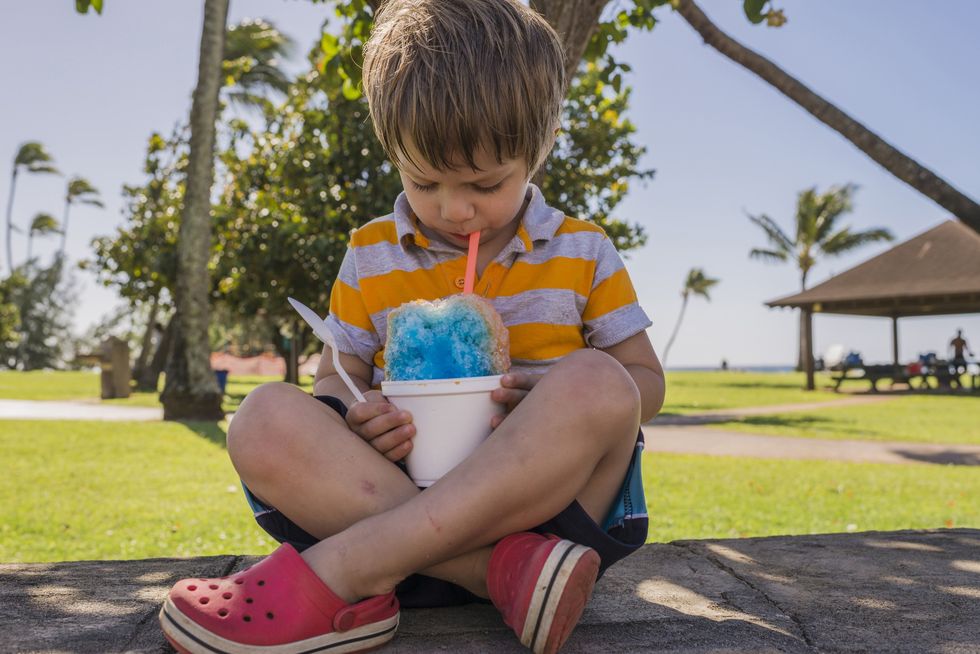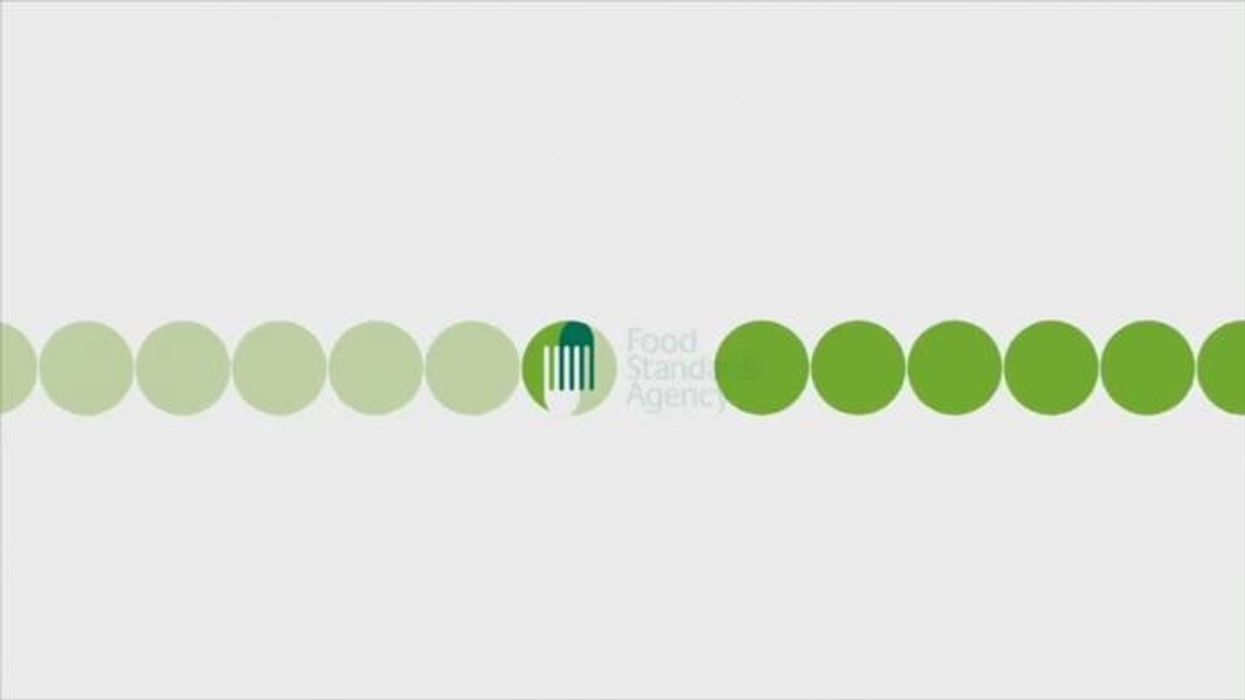Urgent warning issued to parents over 'seemingly harmless' drink that poses serious risk to children

Slush ice drinks (aka 'slushies') are a popular choice among youngsters, especially during the summer. However, when consumed in 'very high' levels, one ingredient could land you in the hospital
Don't Miss
Most Read
The Food Standards Agency (FSA) has issued a stark warning that children under seven should not consume slush ice drinks containing glycerol due to serious health risks.
Glycerol, a sugar alcohol used to prevent the drinks from freezing solid, has replaced sugar in many formulations due to consumer demand for low-sugar options.
Parents and carers were informed that "very high" levels of exposure to glycerol can cause shock, dangerously low blood sugar levels, and loss of consciousness.
The risks are particularly acute when children consume multiple slushies within a short timeframe.
The food safety watchdog announced the revised guidance ahead of the summer holidays, when consumption of these popular frozen treats typically spikes.
Nine confirmed cases requiring hospitalisation have been recorded across the UK over the past three years, with seven additional potential cases reported in the media.
The FSA's assessment found that a single 350ml serving of a slush ice drink containing 50,000mg/L of glycerol poses significant risks to children with lower-than-average body weight for their age.
FSA's chief scientific adviser, Professor Robin May, said: "While these drinks may seem harmless and side-effects are generally mild, they can, especially when consumed in large quantities over a short time, pose serious health risks to young children."
Cases may also be under-reported as mild symptoms include headaches and nausea, the agency noted.

'Very high' levels of exposure to glycerol can cause dangerously low blood sugar levels and shock
|GETTY IMAGES
The updated guidance marks a significant shift from previous FSA recommendations, which stated that slush ice drinks containing glycerol were unsuitable only for children aged four and under.
The earlier advice also discouraged free refills for children under ten – an advisory that is still maintained by the FSA.
The FSA Board endorsed the stricter age limit at its meeting on June 18, following a more precautionary risk assessment that considered children with lower-than-average body weight rather than average weight.
Officials acknowledged that despite its previous recommendations, "incidents of glycerol intoxication are still being recorded" in children aged four and under, particularly where voluntary labelling was absent or ignored.

Slush ice drinks containing glycerol are unsuitable only for children aged four and under
|GETTY
In light of the new guidance, the FSA has urged retailers not to offer free refills to children under ten and to display clear warnings at points of sale.
Parents and caregivers are advised to check whether drinks contain glycerol before purchase and review product labels or signage.
If a child develops headaches, nausea or vomiting after consuming slush ice drinks, caregivers should immediately provide sugary food or drinks and contact 111 for medical advice. Emergency services should be called if a child becomes drowsy or confused.
The guidance extends to ready-to-drink slush ice drinks in pouches and home kits containing glycerol concentrates.
LATEST DEVELOPMENTS:
FSA Chair Professor Susan Jebb commented: "In the warm weather, children may be more likely to consume slush ice drinks containing glycerol, so it's important that parents and carers are aware of the risks. As a precaution, the FSA is recommending that children under seven do not consume slush ice drinks containing glycerol.
"With our counterparts in Scotland, we will be talking to parent groups and charities to provide updated guidance that is useful and applicable across the UK.
"We expect industry to share data on the quantity of glycerol in their products to inform our future work. Meanwhile, there are immediate actions they can take that can help protect children and reduce the risk from these products. For example, retailers should limit cup sizes and should not offer free refill promotions to children under 10."











